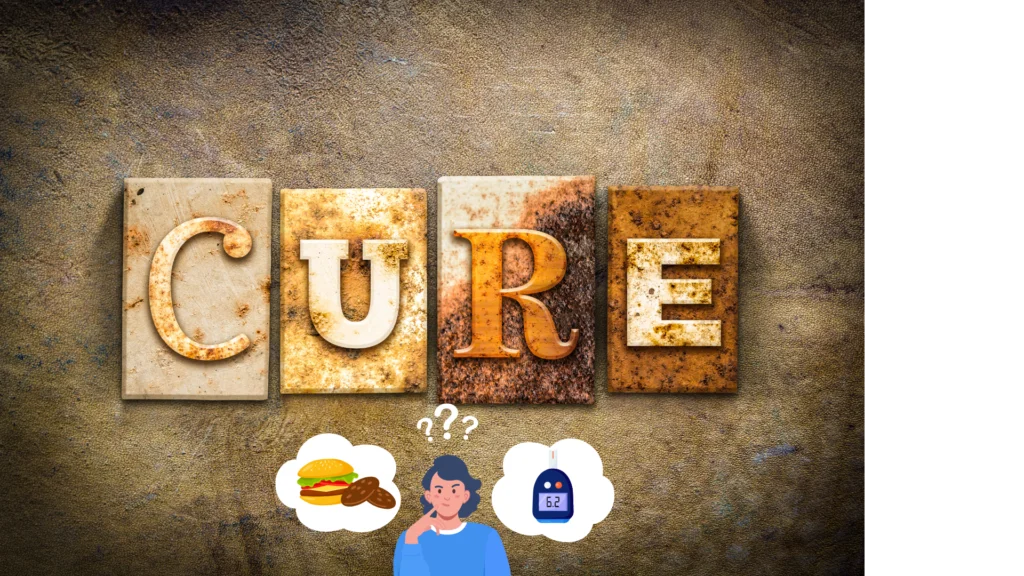Diabetes, a chronic condition affecting millions worldwide, has long been a subject of curiosity and concern. People diagnosed with diabetes often wonder: is there a way to rid oneself of this ailment entirely? In this comprehensive guide, we’ll delve into the intricacies of diabetes, explore treatment options, lifestyle modifications, and alternative therapies, and ultimately address the burning question: can diabetes be cured completely?
Introduction
Diabetes, characterized by elevated blood sugar levels, comes in various forms, the most common being type 1 and type 2. According to the World Health Organization (WHO), an estimated 422 million people worldwide live with diabetes. This figure is expected to rise in the coming years, posing significant health challenges globally.
Understanding Diabetes
Types of Diabetes
Diabetes mellitus is classified into three main types: type 1, type 2, and gestational diabetes. Type 1 diabetes occurs when the body’s immune system attacks insulin-producing beta cells in the pancreas, leading to little to no insulin production. Type 2 diabetes, on the other hand, develops when the body becomes resistant to insulin or fails to produce enough insulin to maintain normal glucose levels.

Is There a Cure for Diabetes?
The quest for a definitive cure for diabetes has been ongoing for decades. While numerous treatments and management strategies exist, a cure that eliminates the need for lifelong medication remains elusive. However, recent advancements in medical research offer promising prospects.
Potential Cure Strategies
Researchers are exploring various avenues in the pursuit of a diabetes cure. These include regenerative medicine, immunotherapy, gene therapy, and pancreatic islet transplantation. While these approaches show potential, they are still in experimental stages and require further development and refinement.
Current Treatments
Insulin Therapy
For individuals with type 1 diabetes, insulin therapy is essential for survival. Insulin can be administered through injections or insulin pumps to regulate blood sugar levels. In type 2 diabetes, insulin therapy may also be prescribed if other treatments fail to adequately control glucose levels.
Lifestyle Changes
Importance of Lifestyle Modifications
While there may not be a definitive cure for diabetes, lifestyle modifications play a crucial role in its management. Simple changes such as adopting a healthy diet, engaging in regular exercise, and maintaining a healthy weight can significantly impact blood sugar levels and overall well-being.
Dietary Strategies
Balanced Diet

A balanced diet comprising whole grains, lean proteins, fruits, and vegetables is fundamental in diabetes management. Monitoring carbohydrate intake and avoiding sugary foods and beverages can help stabilize blood sugar levels.
Exercise and Physical Activity
Exercise Regimen
Regular physical activity is beneficial for individuals with diabetes as it improves insulin sensitivity and helps lower blood sugar levels. Incorporating aerobic exercises, strength training, and flexibility exercises into one’s routine can contribute to better diabetes control.
Medications and Insulin Therapy
Oral Medications
In addition to insulin therapy, oral medications such as metformin, sulfonylureas, and DPP-4 inhibitors are commonly prescribed to manage type 2 diabetes. These medications work by either increasing insulin production, reducing glucose production in the liver, or improving insulin sensitivity in cells.
Alternative Therapies
Natural Remedies
Some individuals explore alternative therapies such as herbal supplements, acupuncture, and yoga to complement conventional diabetes treatments. While these therapies may offer additional benefits, it’s essential to consult healthcare professionals before incorporating them into one’s diabetes management plan.

Research and Progress
Advancements in Diabetes Research
The field of diabetes research is dynamic, with ongoing studies focusing on understanding the disease mechanism, developing novel treatment modalities, and ultimately finding a cure. Collaborative efforts among scientists, clinicians, and pharmaceutical companies continue to drive innovation in diabetes care.
Prevention and Risk Reduction
Healthy Lifestyle Practices
Preventing diabetes or delaying its onset is possible through lifestyle interventions. Maintaining a healthy weight, eating a balanced diet, staying physically active, and avoiding tobacco use are key preventive measures. Regular health screenings and early detection of prediabetes are also crucial in managing diabetes risk.
Managing Diabetes Long-Term
Self-Care Strategies
Managing diabetes effectively requires a proactive approach to self-care. This includes monitoring blood sugar levels regularly, adhering to prescribed medications, following a healthy diet, staying physically active, and attending regular medical check-ups.
Hope and Support
Community Resources
Living with diabetes can be challenging, but support is available. Joining diabetes support groups, attending educational programs, and connecting with healthcare providers and peers can provide valuable guidance, encouragement, and emotional support.
Conclusion
While a definitive cure for diabetes remains elusive, significant progress has been made in understanding the disease and improving treatment options. Lifestyle modifications, medical advancements, and ongoing research offer hope for better diabetes management and, perhaps one day, a cure. By adopting a proactive approach to self-care and staying informed about the latest developments, individuals with diabetes can lead fulfilling lives while effectively managing their condition.

FAQs
Can type 2 diabetes be reversed through lifestyle changes alone?
While lifestyle modifications such as adopting a healthy diet and engaging in regular exercise can help improve blood sugar control in type 2 diabetes, complete reversal of the condition is rare. However, these changes can significantly reduce the need for medication and improve overall health.
Are there any natural remedies that can cure diabetes?
While some natural remedies may help manage diabetes symptoms, there is no definitive cure for the condition. It’s essential to consult healthcare professionals before incorporating any alternative therapies into one’s diabetes management plan.
What role does genetics play in diabetes risk?
Genetics can influence an individual’s susceptibility to developing diabetes. While family history may increase the risk of diabetes, lifestyle factors such as diet and exercise also play significant roles in disease prevention and
